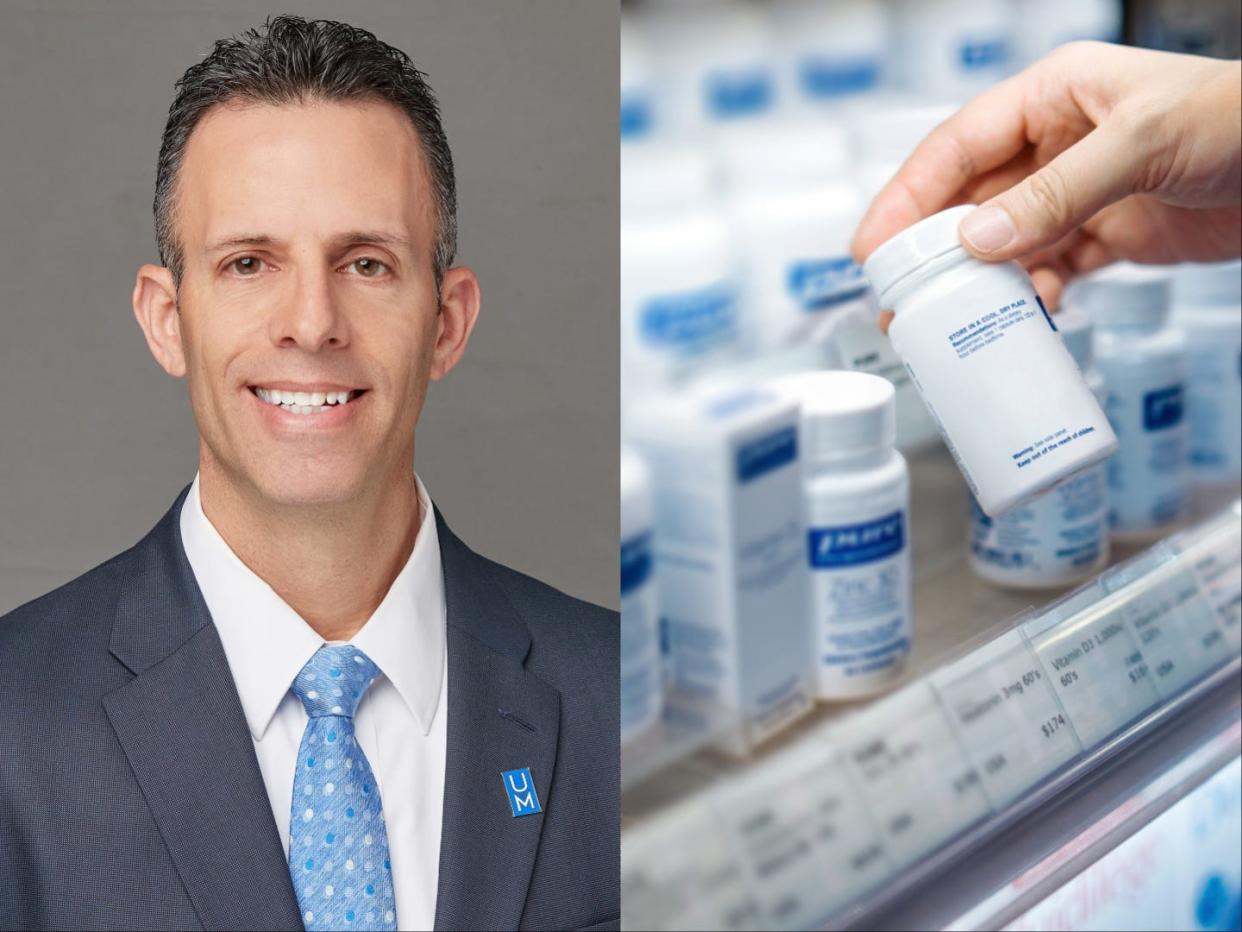Should you take supplements? A scientist who researches whether they work explains 3 people who might benefit.

The supplement industry is huge and makes some big claims about what its products can do.
A supplement scientist said that some ingredients are helpful, while others might not be.
He shared three circumstances where taking supplements might be a good idea.
Is taking supplements a waste of time or vital for our health? With all the mixed messages circulating in health and wellness circles, it's hard to know.
Longevity fanatics such as the multimillionaire tech exec Bryan Johnson religiously take dozens of supplements a day in the hopes of boosting their health. Meanwhile, many dietitians and physicians will tell you that having a healthy diet is more than enough to get all the nutrients our bodies need.
Regardless of whether supplements work, they are hugely popular and the market only continues to grow. Surveys indicate that more than half of US adults take dietary supplements, according to the American Medical Association. And the market is projected to generate around $240 billion worldwide in 2024, up from $135 billion in 2016, according to Statista.
Richard Bloomer, a scientist who researches how safe and effective supplements are, told Business Insider that some products do seem to have positive effects, while others may be overhyped.
"There are many supplements that probably are not worth our time and money, but I think there are a lot of things that do have value. It's just a matter of finding out which ones have value and why," Bloomer said. "When the claims come up and they sound like, 'Wow, this is probably too good to be true,' it probably is too good to be true."
He recommended people do a quick search on PubMed, a database of scientific research, before buying a product. But he also stressed that having a healthy diet, exercising regularly, and getting good-quality sleep are the most important things you can do for your health, and no amount of supplements can substitute the benefits of these.
Bloomer shared three reasons you might consider adding supplements to your regime.
You have a deficiency
Some nutrients, such as vitamins, are essential for the body to function properly. If you have a deficiency, taking a supplement under the supervision of a healthcare professional could be wise, Bloomer said.
For example, most Americans are deficient in vitamin D because we mainly get it from sunlight, he said. Vitamin D is essential for bone, teeth, and muscle health, so he takes a supplement every day to ensure he gets enough. Bloomer previously shared the four supplements he takes daily with BI.
Likewise, vegans, who are at risk of being deficient in vitamin B12, which is found in animal products, are advised to take a supplement. Vitamin B12 keeps the nervous system healthy, supports the production of DNA and red blood cells, and maintains healthy brain function.
Vitamin deficiencies can cause a number of symptoms, such as bleeding gums, mouth ulcers, and brittle nails, but it's best to get checked out by a medical professional before you decide to start supplementing.
You need support with a specific symptom
Bloomer said that supplements can be helpful if you're dealing with something specific. For example, if he's feeling rundown, he might take an elderberry supplement because there's some evidence it can help immune function, he said.
"During periods of time, let's say when people feel as though they're more susceptible to the common cold, using elderberry seems to reduce that to some degree." Vitamin C and zinc may also help with immunity, he said.
Someone might take lutein and zeaxanthin, both carotenoids, if they have an eye condition such as cataracts, because research suggests they can improve symptoms, he said. Likewise, studies have found that coenzyme Q10 might be beneficial for people with heart failure and diabetes, among other conditions, he said.
You want to enhance your physical or mental performance
Supplements can also be helpful if someone wants to boost their mental or physical performance, Bloomer said. Many people already do this daily by starting their morning with caffeine to increase their alertness and focus.
If your health is already good but you want to push the envelope a bit, adding a supplement to your regime could be beneficial, he said.
For example, an athlete might take creatine monohydrate, which is made of the building blocks of protein, because there's evidence to suggest it can improve strength, increase muscle mass, and prevent injuries. It also might be able to enhance brain function in select conditions, Bloomer said.
Read the original article on Business Insider


